Giant Angora Rabbits
Giant
Angora Rabbits: Description, grooming and care. Are you interested in raising
Giant Angoras for their large quantities of warm, lightweight wool? Plus, learn
about shearing the Giant Angora.
The Angora Rabbit has been domesticated for its wool for over 2000 years.
See Angora Rabbits for the history of the Angora Rabbit, as best as can be determined.
The Giant Angora is the result of attempts to gain ARBA recognition for the German Angora Rabbit.
Would you like to learn more about other types of Angoras, or other rabbit breeds in general? Check out our ebook: Domestic Rabbit Breeds.
Interested in other rabbit breeds?
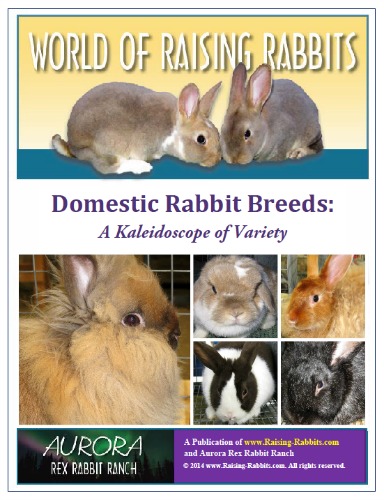
Are you trying to decide which breed is best for you?
Do you see a bunny available, but haven't heard of that kind before?
Are you curious about the different types of rabbits?
Check out our ebook, Domestic Rabbit Breeds. We also have lots of other great books with everything you need to know about rabbits, from housing to healthcare. Check out our BOOKSTORE.
As the autumn leaves fall, so do our prices!
All of our ebooks are ON SALE, 30% off!
Because it was thought that German Angoras were too similar to English angoras, breeders used the German Angora rabbit and added size and a commercial body type. To do this, they included genes from the French Lop and the Flemish Giant. The result was the Giant Angora, accepted for recognition by the ARBA in 1988.
Giant Angoras are large, commercial typed rabbits. This is the only 6-class breed of angora rabbit. According to the ARBA Standard of Perfection, bucks should weigh 9 1/2 pounds (4.32 kg) or more. Does should weigh 10 pounds (4.54 kg) or more. There are no upper weight limits.
Giant Angora Rabbits are also endangered as a breed, according to the Rabbit Geek. In 2006, they ranked #2 on the Rare Breeds List, the second-rarest rabbit breed, after the American Rabbit. (The Rare List is due for an update.) Other angora breeds may more closely meet the particular needs of many angora rabbit breeders and spinners.
Bunny Branola
The Ultimate Rabbit Wool Conditioning Supplement
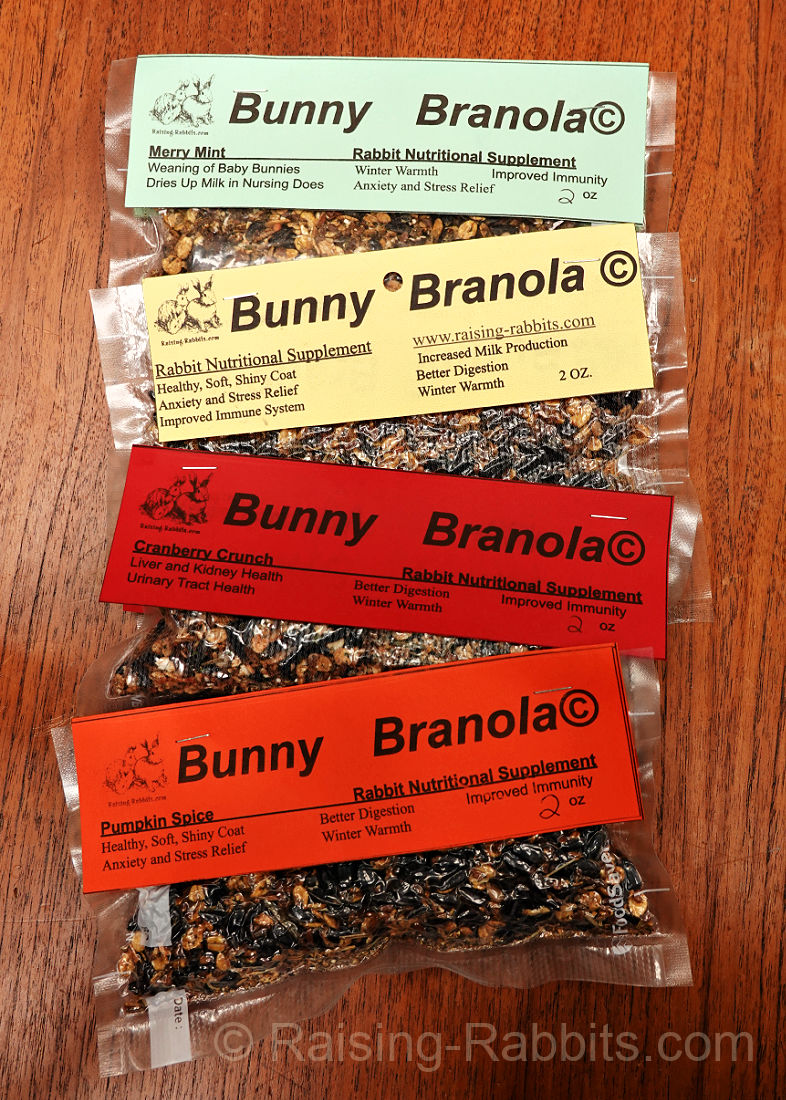 Bunny Branola is available in 4 delicious flavors year round: Original Classic (General Health) |
Bunny Branola is the ultimate rabbit wool conditioning supplement. Our specially formulated treat is all natural ingredients from Washington state. No dyes, preservitives, empty fillers, or other chemicals, just pure goodness. Order your rabbits' favorite, or get a variety pack! You pick the flavors! If you want to find out more about Bunny Branola, including the list of all natural ingredients click HERE. Helps reduce stress levels If you are ready to buy now, we have several sizes, just click the one you want. All prices include shipping. Sample: 2 oz - $7 |
Giant Angora Wool
Bred on the German Angora, the Giant Angora has a similar balance of the 3 types of fiber in its wool:
- soft under-wool: dominant over the other fibers, gently wavy, showing a gentle shine
- awn fluff: strongly crimped, with a hooked end; located between the underwool and the guard hairs
- awn hair (guard hairs): straight, strong,
plenteous, extends beyond the other fibers.
Giant Angora Rabbits do have head furnishings. These will be heavier in bucks usually, but not so extravagant as is seen in the English Angora rabbit.
Of the 4 angora breeds recognized by the ARBA (English, French, Satin, Giant), the Giant Angora produces the most wool.
German Angoras don’t molt, however the Giant Angora goes through a sort of partial molt, and needs its wool harvested every 3 months. Some of the wool can be plucked, but you’ll need to cut or shear at least some of the coat.
Care of the Giant Angora's wool coat is not as difficult as the care needed by the English Angora rabbit. However, angoras are susceptible to starvation by wool block, and are more sensitive to temperature changes due to their incredibly thick coats (or during the 1 - 1.5 months immediately following a shearing).
They require additional care specific to angoras. Here is another excellent resource that can help:
http://bettychuenglishangora.com/
Shearing Giant Angora Rabbits
Go to Joy of Handspinning for more information on spinning angora and other wools.
Check out this great video about spinning the wool straight off the bunny:
Go to Rabbit Breed Descriptions
Consider becoming a member of the American Rabbit Breeders Association
References:
https://www.nationalangorarabbitbreeders.com/giant-angora-rabbits.php
http://en.wikipedia.org/wiki/Angora_rabbit
ARBA Standard of Perfection
Domestic Rabbits and Their Histories, by Bob D. Whitman
Double-Value Guarantee
Our policy is to always OVER-deliver
on value,
which is why your purchase is fully covered by our
Double-Value
Guarantee.
Go ahead - take any of our e-books for a test drive. Peruse our detailed informational and educational e-books. Examine our plans for building rabbit cages, runs, or metal or PVC hutch frames. Check out the Rabbit Husbandry info e-books.
If you aren't completely satisfied that your e-book purchase is worth at least double, triple or even quadruple the price you paid, just drop us a note within 45 days, and we'll refund you the entire cost. That's our Double-Value Guarantee.
Note: When you purchase your
e-books, they will be in PDF format, so you can download them to any device that
supports PDF format. We advise making a back-up copy to a drive or cloud
account. If the books are lost, you can also purchase another copy from Raising-Rabbits.
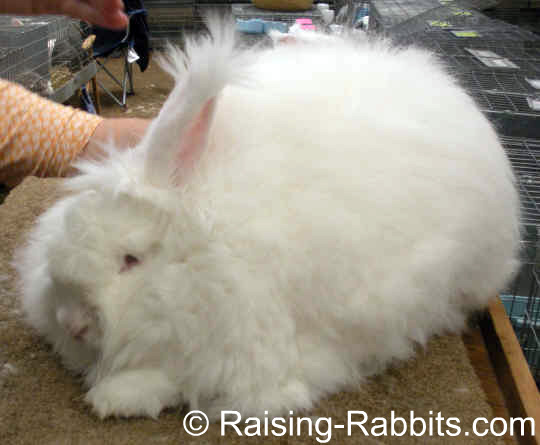
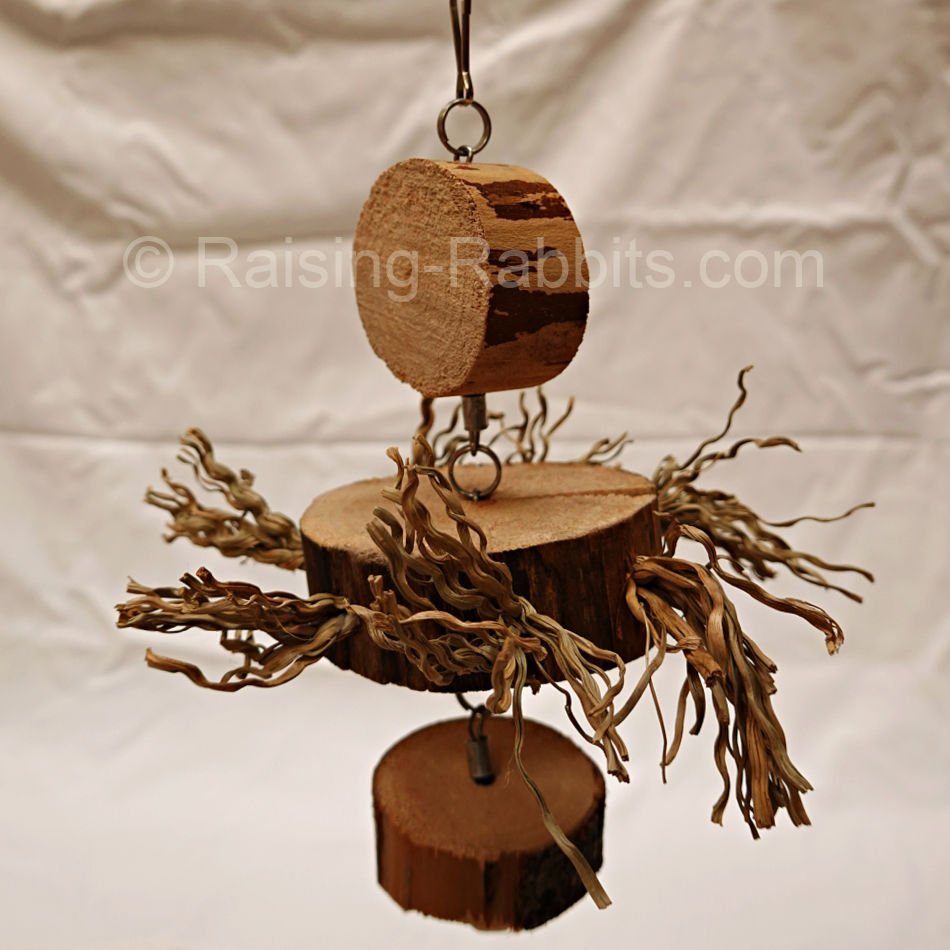
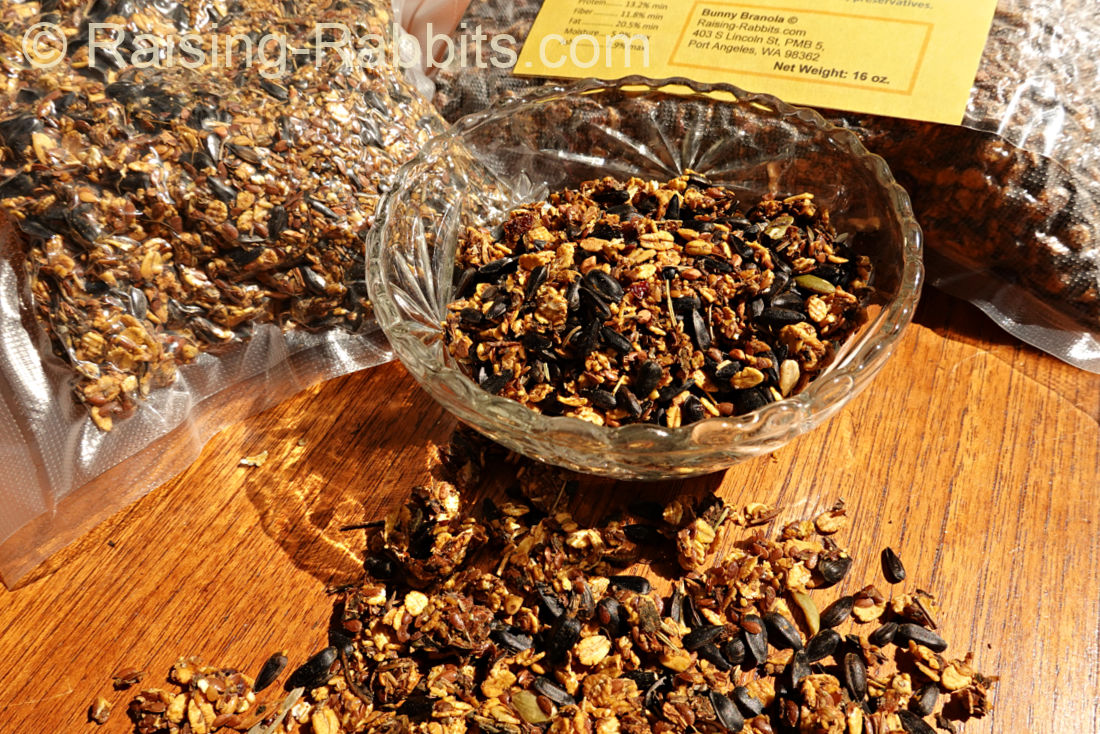
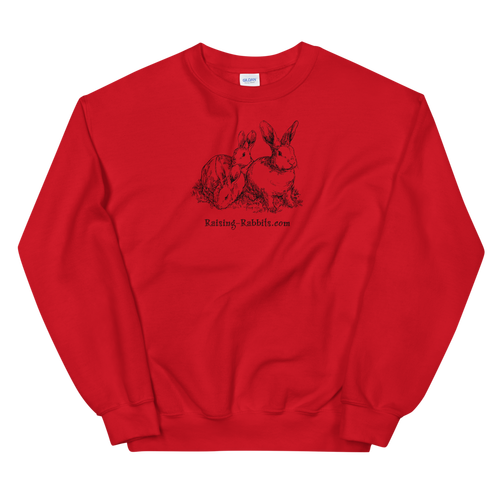
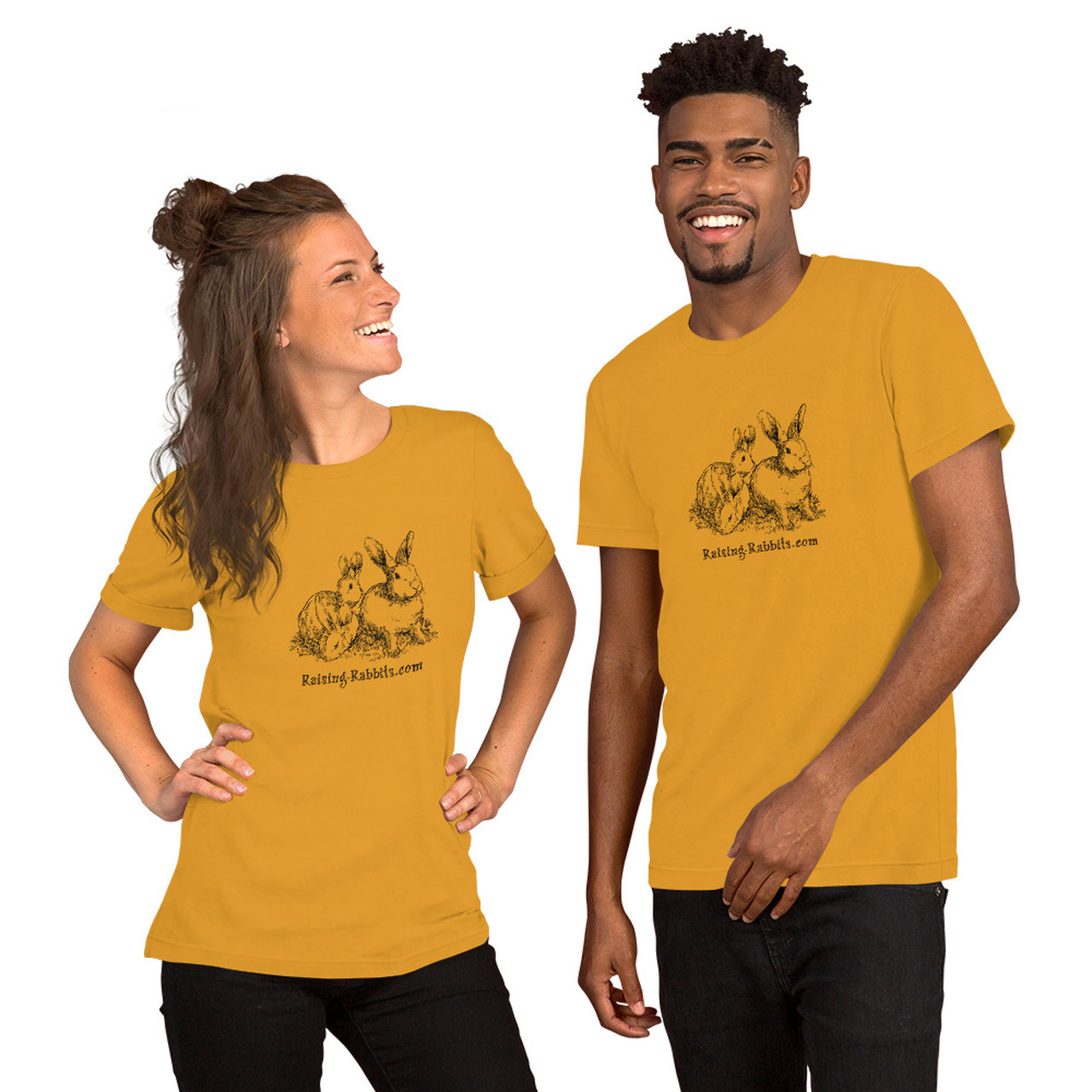
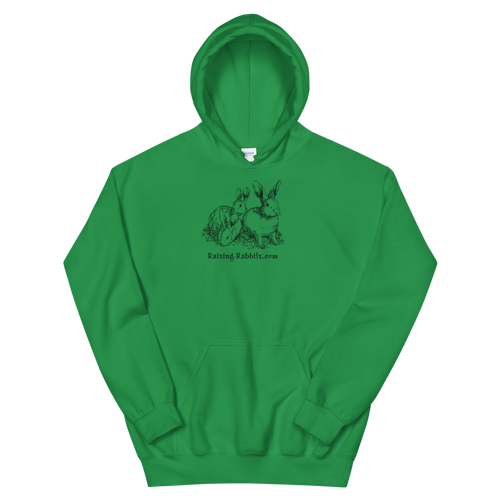
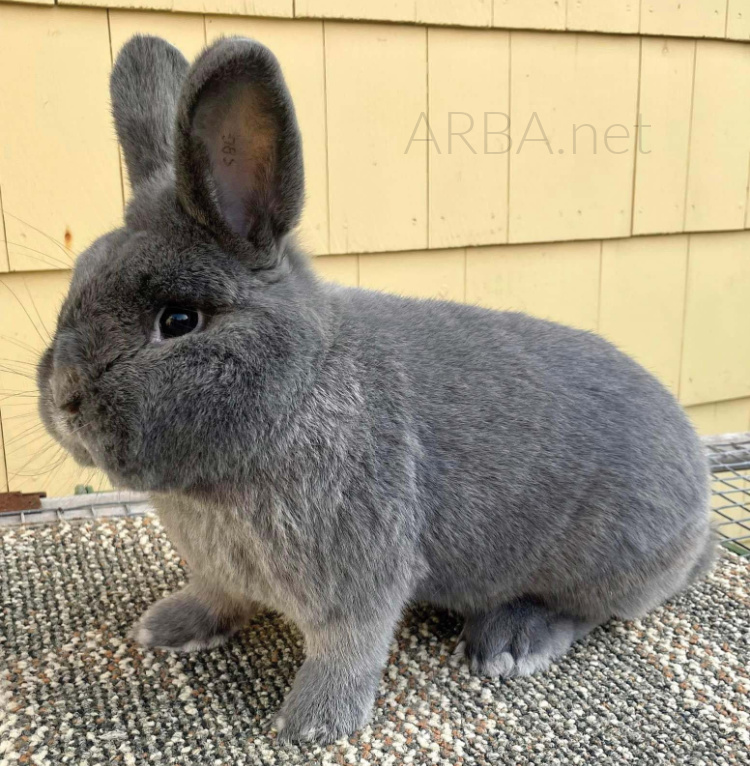

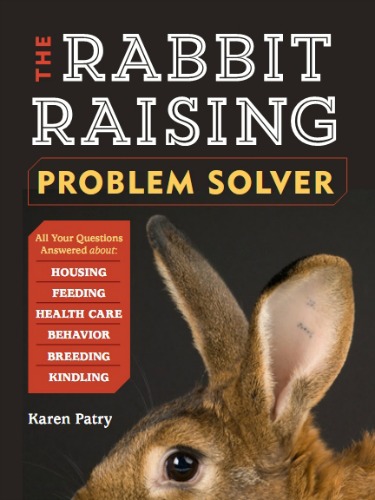

New! Comments
Have your say about what you just read! Leave me a comment in the box below.